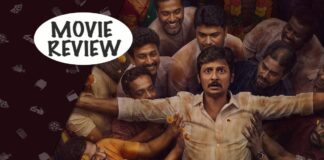
If reliable sources are to be believed, it is the lobby of lyricists, music directors and writers – headed by one lyricist who has a lot of political connections – which got the Central government to okay the amendments so quietly that the rest of the industry never got wind of what was brewing. Human resource development minister Kapil Sibal may not even be aware of the grave injustice he would be doing to the community of producers if he were to allow the Bill to become law.
The proposed amendments to the Copyright Act seek to make the music director and lyricist partners in the revenues of the producer from sale of its music CDs, ring tones and all other music-related rights. Likewise, writers will share in the spoils from sale of various rights of a film including satellite, home video and distribution rights of the various circuits.
Common sense would tell us that what the HRD minister is proposing to do is patently wrong. As always, the action of the minister suggests that the men in power have scant know- ledge of the functioning of the film industry and aren’t even keen on understanding the working before passing a law which could derail the industry. The lack of application of mind on the part of the bureaucracy is evident in the fact that it chose to take a one-sided view of the matter – that of the writers, lyricists and music composers – and completely ignored the other equally important side – the producers or, in other words, the risk-takers.
By proposing that music directors, script writers and song writers will be partners in a producer’s revenues, what the government is effectually saying is that the aforementioned three classes of creative people would be entitled to a share in the profits. But we all know that only he who takes a risk can stake a claim on the profits. Other than the producer, nobody among the hundreds of people who collaborate to make a film ever take a risk. Each one is paid his fee for the work done – every one except the producer who waits for the film to either be sold or released and only then gets something for his risk, that too, if he is lucky. If the film fails to recover its cost, the producer has to incur a loss.
What the proposed amendment seeks to do is make the writer, music composer and lyricist share in the revenues of the producer without having to wait for the profits to accrue. This means, the producer will have to give a part of his revenue to each of the three classes of creative people even if his revenue would, in the final tally, be less than his total cost to produce the film. Given that the producers are in the red in 85% of the cases, you can well imagine how idiotic the amendment would be if it is allowed to become law.
Moreover, the amended Bill is silent about compensating the producer for the losses. That means, if, after sharing his revenues with the copyright claimants, the producer realises (which he would in 85% of the cases) that he has suffered a net loss, the writer, lyricist and music director would not be required to refund him the money they received from him.
Interestingly, the singers who lend their voices to the songs penned by the lyricists and set to tune by the music directors have been kept out of the list of creative people who can stake a claim on the copyright. While that may mean one class of creative people less for the producer to share his revenue with, it defies logic why they should have been kept out of the party. By the same logic, why have directors, actors, editors, choreographers and other skilled workers not been included in the list of creative people covered by the amendment?
A producer pays each creative person a fee or remuneration for working in or on his film, but he himself doesn’t take any fee during its making. (The exceptions are those producers who charge a producer’s fee from corporates which back a project as either the joint producer or the presenter of a film.) If the government is really looking for an egalitarian way of working, it should ensure that all those who can share in the spoils need not be paid any fees for their contribution, just like the producer. Of course, no composer, song writer or script writer would ever agree to work by such a rule.
While the lobby of persons seeking this amendment to the Copyright Act might argue that song writers, music composers and script writers in Hollywood also get a share in the revenues of the producer, the truth is that they don’t.
The HRD minister is probably not aware that the Supreme Court in 1977 and again in 1993 held that the copyright in a film belongs solely to the producer.
If a singer or music director or lyricist has excelled in his field of work, let him, by all means, demand a share in the revenues. Lata Mangeshkar does it, A.R. Rahman also insists on getting royalty for every audio CD sold. But to amend the law and give every creative person a blanket right to claim a share in the revenues is ridiculous, to say the least.
A song in a film or a film script is born out of a collaborative effort of many people. It is wrong to assume that the lyricist, composer and script writer are so important that they need to be compensated by giving them a partnership with the producer. The proposed amendment makes the rights of these three categories of people non-assignable – and that would be patently incorrect. It is not just the impracticality of the matter that is of concern here because how, after all, does the governing body – in this case, the IPRS – keep an account of each producer and his new partners? Even otherwise, the fact remains that the amendment would be ab initio void.
The government may not be aware that it would be opening a can of worms if it allows the Copyright Amendment Bill to be passed. Litigation is waiting to happen, Mr. Sibal. And only you can prevent it!
– Komal Nahta





![Yaariyaan 2 Actor Meezaan Jafri & Directors To Get Arrested? Punjab Police Reaches Mumbai After SGPC Accused The Film Of Hurting Religious Sentiments Over Kirpan’s Use [Reports] Yaariyaan 2 Actor Meezaan Jafri & Directors To Get Arrested? Punjab Police Reaches Mumbai After SGPC Accused The Film Of Hurting Religious Sentiments](https://www.koimoi.com/wp-content/new-galleries/2023/09/yaariyaan-2-actor-meezaan-jafri-directors-to-get-arrested-punjab-police-reaches-mumbai-after-sgpc-accused-the-film-of-hurting-religious-sentiments-01-218x150.jpg)








